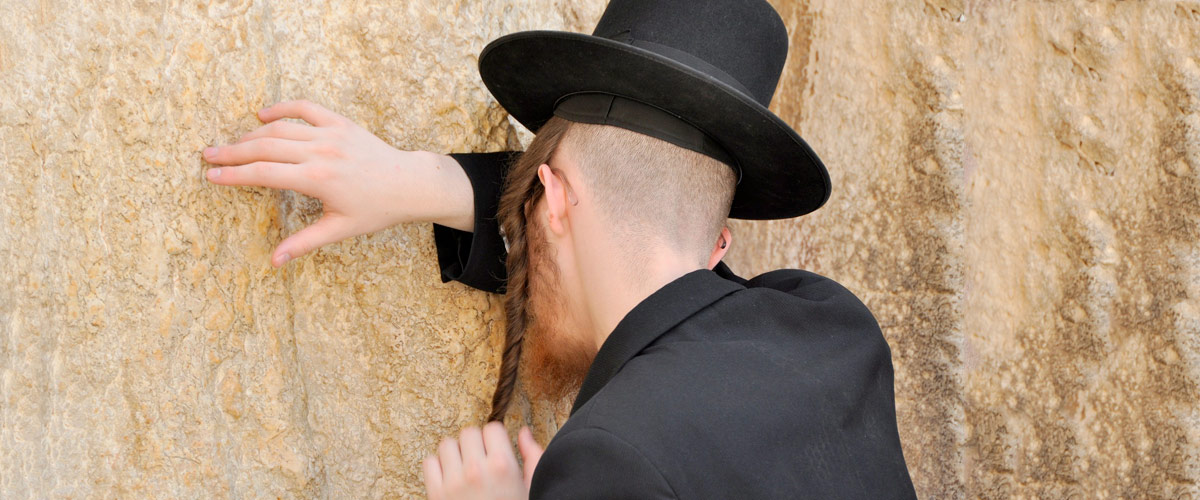Of all the religions in the world, three often find themselves grouped together: Judaism, Christianity and Islam. That is because each of these religions claim Abraham as their father.
The Jewish People
For Judaism, the story begins with a man called Terah. Born around 2100BC in Ur, modern-day Iraq. He had three sons: Abram, Nahor and Haran. Haran died young, leaving a son called Lot. After Haran’s death, Terah took his family and began a journey towards Canaan. But he never got there, settling rather in a city also named Haran. It was there that God spoke to Abram, telling him to leave and go to a land that God would show him. God promised to make him a blessing to all the people of the world. So, with his wife Sarai and his nephew Lot, Abram set out. (Genesis 11:27–12:9)
Sarai could have no children, so Abram had his first child with Sarai’s servant, Hagar. This was Ishmael, whom the Muslims claim as their connection to Abraham. Later, after the death of Sarai, Abram would marry Keturah, with whom he had six other sons. But God was not looking for these sons, He was waiting for the son He had promised to Sarai. Before Sarai died, God changed Abram’s name to Abraham, which means ‘father of many nations’. In the following year, He fulfilled His promise, by giving them a son, whom they named Isaac. (Genesis 15–18:15, 21:1–7)
Isaac married Rebekah, the sister of Laban. They had two sons, Esau and Jacob. But it was to Jacob that God showed His favour. Jacob married his two cousins, Laban’s daughters, Leah and Rachael. In total, Jacob had twelve sons. After God changed Jacob’s name to Israel, the families of his sons became the Twelve Tribes of Israel. (Genesis 24, 27–30)
The God of the Bible is often described as the God of Abraham, Isaac and Jacob. In the Jewish scriptures, the people of God are not just the sons of Abraham, but those descended from Abraham, Isaac and Jacob.
The Jewish Law
The Jewish Bible, known as the Tanakh, makes up about 77% of the Christian Bible. These are the books we know as the Old Testament. But the Tanakh has them in a different order. It also begins with the five books of Moses, known as the Law. These are followed by the eight books of the prophets: Joshua, Judges, Samuel, Kings, Isaiah, Jeremiah, Ezekiel, and the twelve minor prophets, incorporated as one book. This is why the Bible talks of Jesus teaching from “The Law and the Prophets”. The third section contains the remaining writings, starting with Psalms and ending with Chronicles.
The Tanakh contains the history of God’s people, from Adam to Abraham to the nation of Israel. First under judges, then under good kings like David and bad kings like Ahab. It shows how the nation was divided and later sent into exile, but how God restored a remnant of His people to Jerusalem. It also describes the law they were to live under and the means by which they could receive forgiveness and salvation from God.
The Jewish Messiah
It is possible to convert to Judaism, but to be considered Jewish by birth you need to have a Jewish mother. The Jews are as much a race as a religion. So, a secular Jew is still Jewish, and may be as proud of their heritage as a practicing Jew. For God, being born Jewish was never enough. In the opening of the gospel of Matthew, the prophet, John, brings a strong message to the people of Israel. ‘Bear fruit in keeping with repentance. And do not presume to say to yourselves, ‘We have Abraham as our father,’ for I tell you, God is able from these stones to raise up children for Abraham.’ (Matthew 3:8,9)
Jesus, himself a Jewish Rabbi, also rejected the tradition of salvation by association. When the Jews said to Him, ‘Abraham is our father’, Jesus told them, ‘If you were Abraham’s children, you would be doing the works Abraham did, but now you seek to kill me, a man who has told you the truth that I heard from God. This is not what Abraham did. You are doing the works your father did.’ Confused, the Jews said to Him, ‘We were not born of sexual immorality. We have one Father—even God.’ Jesus replied, ‘If God were your Father, you would love me, for I came from God and I am here. You are of your father the devil, and your will is to do your father’s desires.’ To Jesus, having Abraham as their father did not make the Jews children of God. To be saved, the Jews need the Messiah. (John 8:39–44)
Jesus fulfilled the prophecies concerning the Messiah from the Tanakh. Yet the Jews continue to reject Jesus as a teacher or Messiah. This is because they have additional criterion for the Messiah.
‘The messiah will be a king who learns Torah like King David did, who will bring all the Jews back to Israel, fight against Amalek and rebuild the Temple. When he has successfully accomplished those tasks we will know retrospectively that he is the Messiah.’ (Rabbi David Sedley, jewishanswers.org)
This understanding of the Messiah does not come from Moses, the prophets or any part of the Tanakh. This understanding of the Messiah comes from the Talmud, an aspect of Jewish tradition not adopted by the Christian faith.
The Jewish Writings
The Talmud consists of Rabbinical teachings about the law and the prophets. Because they were not given by the prophets, these are not considered the inspired Word of God. These teachings were passed on through oral tradition, but when the Temple was destroyed in 70AD, they realised they could no long rely on the spoken word to preserve their teachings. So, they began to record them in books. The first portion was completed around 200AD. The expanded collection, known collectively as the Talmud, was completed in 500AD. These writings are the basis for modern Jewish living. This means that the Judaism practiced by modern Jews is adopted from writings more recent than the New Testament.
Salvation for the Jews
With no temple and no Jesus, modern Jews have no way of receiving forgiveness or salvation. Passover and Yom Kippur are still observed, but without sacrifice. Some claim forgiveness is obtained through repentance, prayer and good deeds. But while Judaism has changed, the Law of Moses has not. Leviticus 17 still says, ‘… it is the blood that makes atonement for one’s life’. Jesus established the New Covenant with His own blood. He died as a ransom to set free from sins all those He has called. Anyone who receives Jesus can enjoy forgiveness and salvation without needing a physical temple or the sacrifices prescribed within the law. (Hebrews 9:15)
There is a natural progression from Old Testament Judaism to the Christian faith. The first Christians were Jews who understood the Law and the Prophets and saw Jesus as the fulfilment of these. Jesus Himself said, ‘Do not think that I have come to abolish the Law or the Prophets; I have not come to abolish them but to fulfil them’. (Matthew 5:17)
The church has not replaced Israel. God regards both in the same way: as branches.
The Jews were the natural branches, Christians were grafted in, but Christ is the vine. The church has not replaced Israel. God regards both in the same way: as branches. Jew and non-Jews have both sinned and both need a saviour. God did not spare the natural branches, so those grafted in should take nothing for granted. We can only be justified by Jesus’ atoning death, and faith in Him. Jews don’t get off easier for being circumcised, obeying the law or being genetically linked to Abraham. But the good news for unbelieving Jews is that they can be grafted back in, if they acknowledge the Son. (1 John 5:12; John 1:12)
Because the vine is Christ, non-Jews do not need to become Jewish or behave according to Jewish customs. Paul said don’t let anyone enslave you with human tradition; don’t let them judge you over food and drink, festivals, new moons or Sabbaths. ‘These are a shadow of the things to come, but the substance belongs to Christ.’ (Colossians 2:8,16-17)
For All People
God’s redemption plan was never restricted to one nation. That is what Jesus addressed with a homemade whip in the temple courts, ‘… my house shall be called a house of prayer for all peoples’ (Isaiah 56:7). Paul writes, ‘There is neither Jew nor Greek’. God began with the Jews, but is not the God of Jews only. He is Lord of all, and all are one in Christ Jesus. Jewish and non-Jewish believers are equally sons of Abraham, because faith was credited as righteousness, to Abraham, before his circumcision. Therefore, a Jew and a non-Jew who receive Christ are equally sons of God. (Galatians 3:28; Colossians 3:11)
For now, the Jews have rejected Jesus, but God has not rejected them. They’ve stumbled on the Rock on which they should have stood. They have turned from Him and broken His law. But God is a faithful, covenant-keeping God. When the fullness of the non-Jews have been saved, God will turn His attention again to the Jews. (Romans 1–11)
‘And in this way all Israel will be saved, as it is written, “The Deliverer will come from Zion, He will banish ungodliness from Jacob, and this will be my covenant with them when I take away their sins.’ (Romans 11:26,27)











